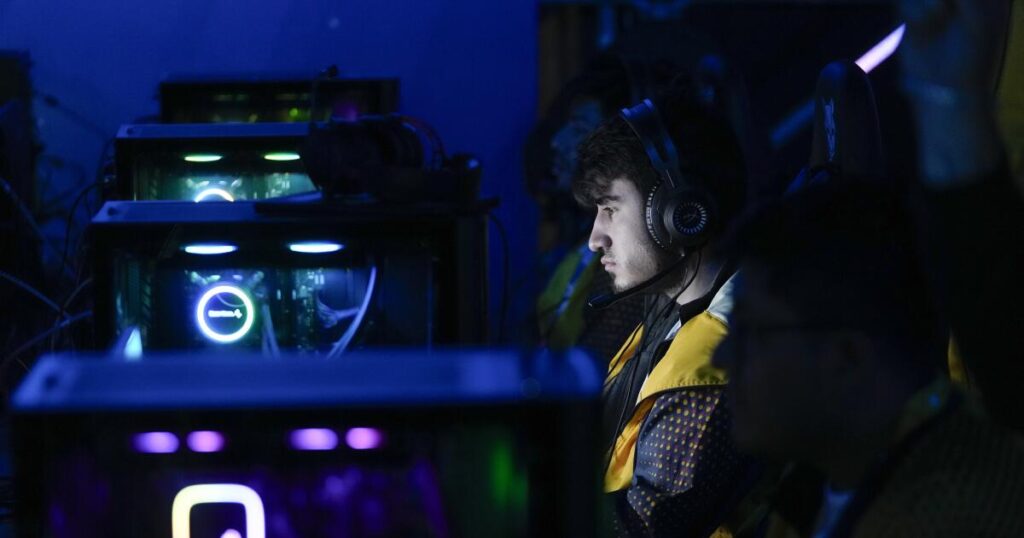As the Olympics inched closer to adding esports, or video gaming, to the traditional menu of physical running and swimming, officials face a delicate balance.
Can they use the game to attract a new generation of fans while avoiding virtual bloodshed and violence?
The question comes on the back of last week's announcement that members of the International Olympic Committee are soon to vote and approve the creation of an esports Olympics.
The event, which would be held separately from the traditional Olympics, could be held for the first time as early as next year.
IOC President Thomas Bach made it clear that “our values remain a red line” when it comes to shooters and other violent content.
This stance has kept many of the most popular video games, such as “League of Legends,” “Overwatch” and “Valorant,” on the other side of the divide, alienating many gamers.
“Unless the games they play are being played in the Olympics, it's not going to grab their attention,” said Mark Deppe, director of esports at the University of California, Irvine, which offers game design studies and has several teams in the collegiate esports league.
The IOC has been studying esports for about six years, conducting careful research through forums and pilots.
More than 130 players took part in Olympic Esports Week in Singapore last summer, where approved games included “NBA 2K23” and “Gran Turismo 7.” Virtual sports saw players donning virtual reality headsets for taekwondo or sprinting on stationary cycling bikes.
There was also chess and, interestingly, a fighting game called “Street Fighter 6.”
“I appreciate the red lines and I agree that the IOC needs to stick to its values,” Deppe said. “It just seems a bit too subjective at this point.”
The IOC's esports events have attracted more than six million views, with three-quarters of the audience being aged between 13 and 34, the commission said, and Bach is confident the IOC is “keeping up with the pace of the digital revolution.”
But when members of the commission's executive committee proposed the creation of an Olympic esports tournament last week, they made it clear that the new venture would be run separately from the Olympic Games in terms of organisation and funding.
The approval vote is expected to take place at an IOC session ahead of the 2024 Paris Summer Olympics, which has already attracted attention for the addition of breakdancing.
With the challenges ahead in mind, Deppe wonders whether the Olympic movement could form a mutually beneficial partnership with video games, similar to the way it has with alternative sports like surfing and skateboarding.
“It could be a way to connect young people with their parents and grandparents who don't understand gaming,” he said. “It could bring more people into esports.”

